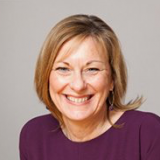Latest Blogs
-
ARC 2022: Karen Middleton's conference speech
Well what a joy to have spent a couple of days together face to face! To value the community of our physiotherapy profession. To experience that sense of belonging. I’ve missed this! The last few years have been very, very difficult for all of us and you, our members, have been at the forefront of dealing with the pandemic – I applaud and thank you. Our professional and personal lives have collided; we’ve put our resilience to the test and many of us have been ill and, tragically, lost loved ones. But as we come out of the Covid pandemic, I see and feel something even more pervasive than aSee more -
EDI strategy: taking the time to get it right
We heard very clearly from members the concerns about how collaborative we could be with members when there is so much work in the current time frame and when many members are working exceptionally long hours on the frontline during the pandemic. Without this collaboration, there is the real danger of developing a strategy which ‘hits the target but misses the point’. We are clear, however, that any slowing down in no way diminishes our ambition for transformation. The work to develop the CSP’s Equality, Diversity and Inclusion Strategy started last June with a whole range of listening eventsSee more -
CSP responds to proposals to reform the NHS in England following the pandemic
The Department of Health and Social Care has today published a White Paper, titled I ntegration and Innovation: Working Together to Improve Health and Social Care for All, which sets out a series of new proposals that aim to reform the NHS and build on its successful response to the pandemic. The CSP views the proposals as a welcome shift away from competition, and towards greater collaboration and integration, and we believe the reforms are essential to strengthen accountability at every level - from the Secretary of State and Parliament to NHS bodies that are part of local systems. HoweverSee more -
An apology from Karen Middleton
I was faced with a dilemma last Friday: I write a weekly email on Fridays to all CSP staff and I included a paragraph recognising how staff must be feeling about the distressing footage of the death of George Floyd in Minneapolis and the sense of absolute outrage across the world at the implicit and explicit racism still so prevalent in our society and challenged by the Black Lives Matter campaign. I apologised for how long it took us as an organisation to respond and my personal responsibility for this. And then I deleted the paragraph. I reinserted and deleted it twice. The email went toSee more -
Rehabilitation is key to recovery – during and after Covid-19
Much of this work is providing high quality treatment, care and rehabilitation to those with severe symptoms of Covid-19, primarily in the acute sector. But I’m also well aware that physiotherapy staff are doing incredible and invaluable work across the entire Covid-19 care pathway, not only in intensive care and acute wards, but also in community settings and people’s homes - providing essential rehabilitation to patients who’ve already been discharged. As we get through the pandemic we know more and more patients will recover, leave hospital and return to their homes. And when they do, weSee more -
Physical inactivity: time to tackle a global health problem
A recent WHO report estimated that more than a quarter of people worldwide - 1.4 billion - are not doing enough physical exercise. In the UK, inactivity levels in 2016 were 36 per cent overall – 32 per cent of men and 40 per cent of women. We know that inactivity raises the risk of a raft of health problems, such as heart disease, type-2 diabetes and some cancers. So why is it that the amount of people not doing enough has barely risen since 2001? Our own polling echoes the WHO’s findings, revealing 30 per cent of people with long term conditions are completely inactive each week. Whether it’sSee more
